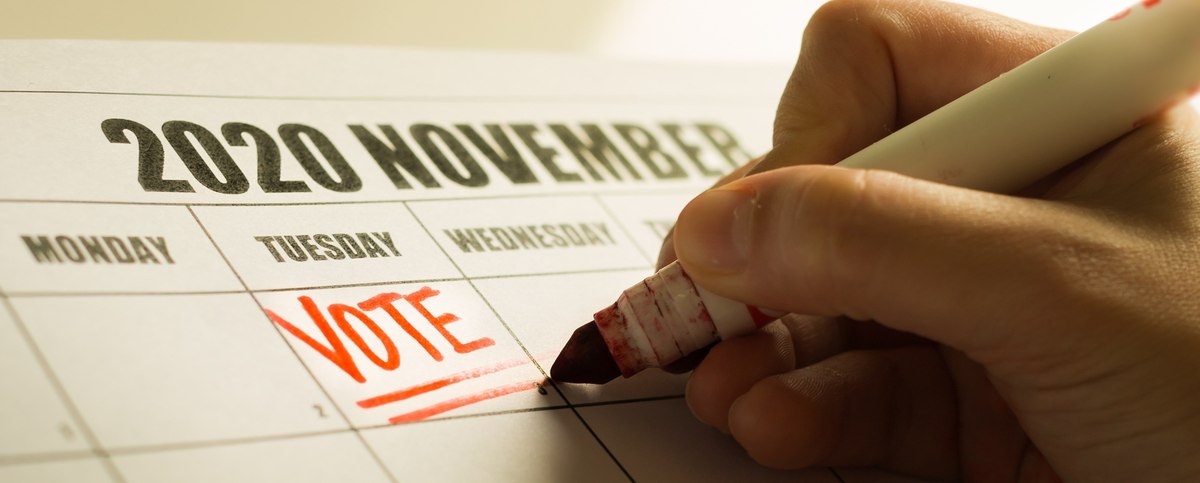Even before Tuesday’s debate, registered voters were worried about the potential for election problems, with those favoring Democratic nominee Joe Biden concerned about what could happen after the election should their candidate win, while voters who support President Donald Trump were more fearful of an unfair election.
In the latest Economist/YouGov Poll, conducted entirely before the debate began, American voters are very conscious of the possibility of one candidate winning the popular vote while another carried the Electoral College, just as happened in 2016.
While voters tend to believe their candidate will emerge victorious (both in debates and in the election), Biden voters are far less likely to think he will carry the Electoral College as to say he will win the popular vote. While 87% of those who back the Democratic candidate think he is set to win the most votes, only 63% think he will triumph in the Electoral College.
The opposite is true for Trump voters — who are 13 points more likely to foresee an electoral vote victory for their candidate (83%) as to see him carrying the national popular vote (70%).
This is a critical election for nearly all voters: 94% of Biden voters and 92% of Trump supporters call casting a vote in this election very important. Nine in ten of those who plan to vote by mail (and don’t live in states where ballots are mailed to all registered voters) have requested their ballots, though many have yet to receive them. More than four in five of those voting in-person on Election Day know where their polling place is located.
Biden supporters continue to be more confident than Trump voters that their own vote will be properly counted, and that the election will be fair. About half (46%) of Biden voters have a great deal of confidence that will happen, while only 29% of Trump supporters do.
Both sets of voters are concerned about what happens after people vote. Most still expect the election outcome will be known within a few days of the election (though only 36% think we will know within 24 hours). The president’s supporters are more hopeful of an election night decision. One in five Trump voters (22%) believe we will learn the outcome on Election Day itself; just 14% of Biden supporters believe that.
Would a slower count this year be acceptable to Americans? That depends. The vast majority of voters believe that a few days delay is acceptable, but the tolerance of anything longer depends on whom you favor.
Most Trump supporters (54%) who say it will take a few weeks before the election results are known say that timeline is unacceptable. It’s a sentiment the president would agree with, though most likely voters (56%) who expect the results will take a few weeks are comfortable waiting that long.
Those who favor the former vice president have a different concern: whether or not the president would allow a peaceful transition of power should he lose the November election. About two in five (42%) consider it unlikely. Three in five of the president’s voters (57%) believe it's likely that there would be a peaceful transition if that happens (though it’s definitely not an outcome most of them expect, as the vast majority believe Mr. Trump will be re-elected).
Related: Three in four Americans expect mass protests if Donald Trump is re-elected
See the toplines and crosstabs from this week’s Economist/YouGov Poll
Methodology: The Economist survey was conducted by YouGov using a nationally representative sample of 1,500 registered voters interviewed online between September 27 – 30, 2020. This sample was weighted according to gender, age, race, and education based on the American Community Survey, conducted by the US Bureau of the Census, as well as 2016 Presidential vote, registration status, geographic region, and news interest. Respondents were selected from YouGov’s opt-in panel to be representative of all US citizens. The margin of error is approximately 3.8% for the overall sample.
Image: Getty










